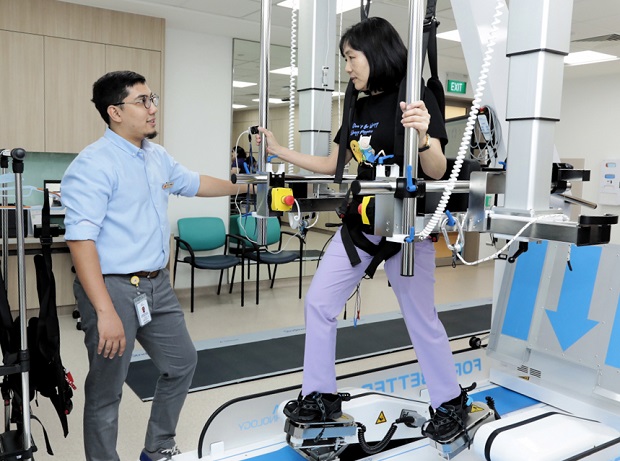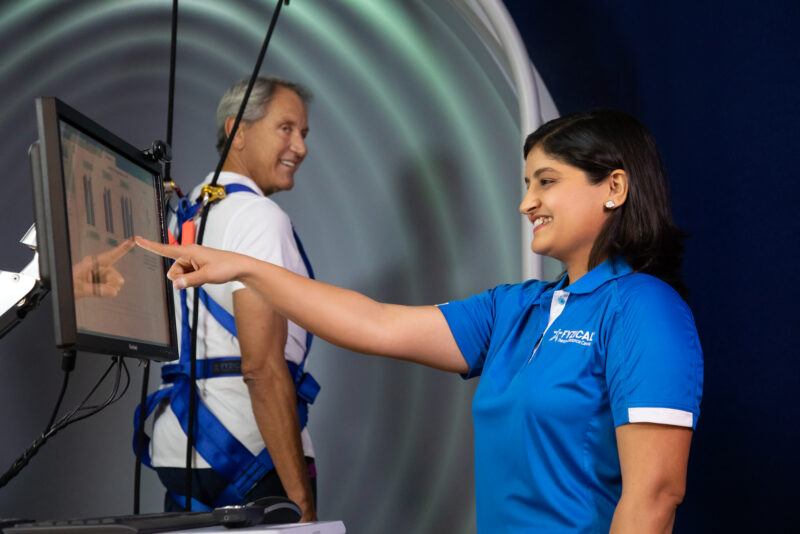In an era where technology permeates every facet of our lives, the field of rehabilitation is witnessing a transformative shift. Artificial Intelligence (AI) is at the forefront, reshaping how patients recover from injuries and illnesses with precision previously unimaginable.
Gone are the days of one-size-fits-all treatment plans; in their place arise tailored approaches infused with real-time data analysis and predictive algorithms that adapt to individual needs. Imagine a world where a virtual therapist monitors your progress around the clock, suggesting adjustments to your regimen before you even realize youre plateauing.
From robotics aiding mobility to apps that foster mental resilience, AI not only enhances the rehabilitation experience but also leads to remarkably improved outcomes. As we dive into this intricate landscape, we will explore how these innovations are not just shaping the future of recovery but redefining what it means to heal in a digital age.
Enhancing Patient Assessment and Diagnosis

In the realm of rehabilitation, the integration of AI technology is revolutionizing patient assessment and diagnosis, ushering in a new era of precision and efficiency. Traditional methods often involve lengthy evaluations that can overlook subtle nuances in a patients condition; however, AI algorithms can analyze vast datasets in mere moments, identifying patterns that may elude even the most trained eyes.
Imagine a scenario where a patient’s movement patterns are captured in real-time, feeding data into an AI system that instantly provides feedback on their progress. This dynamic approach not only streamlines diagnostics but also personalizes rehabilitation strategies, ensuring that no two recovery journeys are the same.
With the ability to continuously learn from ongoing data, AI is not just enhancing assessments but also empowering clinicians with insights that drive better decision-making. As we embrace these innovations, the door to more accurate, individualized care is wide open, promising improved outcomes for patients embarking on their rehabilitation journeys.
Remote Monitoring and Tele-rehabilitation

Remote monitoring and tele-rehabilitation have revolutionized the way therapy is delivered in the digital age, transforming traditional approaches into dynamic, responsive systems tailored to individual needs. Imagine a patient recovering from surgery, nestled in their own home, yet still connected to a network of healthcare professionals through wearable devices and smart applications.
These technologies continuously track vital signs, movement patterns, and rehabilitation progress, offering real-time feedback and personalized recommendations. Strikingly, the combination of artificial intelligence and telecommunication not only enhances patient engagement but also empowers clinicians to adjust treatment plans swiftly, ensuring optimal recovery pathways.
This synergy allows for a level of flexibility and support that was unimaginable in the past, breaking geographical barriers and fostering a more inclusive rehabilitation experience. As the digital landscape evolves, remote monitoring is not merely a convenience; it is a vital component of modern rehabilitation, paving the way for improved outcomes and redefined patient care.
The Future of Rehabilitation: Trends and Predictions

As we look to the horizon of rehabilitation, it is clear that the integration of AI will play a transformative role in shaping recovery outcomes. Imagine a future where virtual reality environments are tailored to individual patient needs, immersing them in therapeutic scenarios that accelerate healing while maintaining engagement.
Wearable technologies will continuously monitor vital signs and mobility, allowing for real-time adjustments to rehabilitation programs, thus personalizing treatment like never before. We can anticipate the rise of predictive analytics, which will not only forecast potential setbacks but also suggest proactive interventions, further enhancing recovery efficiency.
Alongside these advancements, the role of mental health in physical rehabilitation will gain unprecedented attention, fostering a more holistic approach to recovery. In this digitally driven landscape, we will see collaboration among healthcare professionals redefined, as AI-powered platforms facilitate seamless communication and resource sharing.
Indeed, the future of rehabilitation is not just about overcoming obstacles; it’s about empowering individuals with tailored solutions that inspire resilience and hope on their journey to recovery.
Conclusion
In conclusion, the integration of artificial intelligence in rehabilitation is transforming the landscape of recovery, offering innovative solutions that enhance patient outcomes and streamline therapeutic processes. By harnessing the power of data analysis and personalized treatment plans, AI is paving the way for more effective rehabilitation strategies that cater to individual needs, thus promoting greater engagement and adherence among patients.
Moreover, techniques like 스웨디시 massage therapy can be augmented with AI-driven insights, providing therapists with valuable information to optimize their interventions. As we continue to explore the possibilities presented by technology, it is clear that AI will play a pivotal role in shaping the future of rehabilitation, ultimately leading to improved health and well-being for countless individuals.


